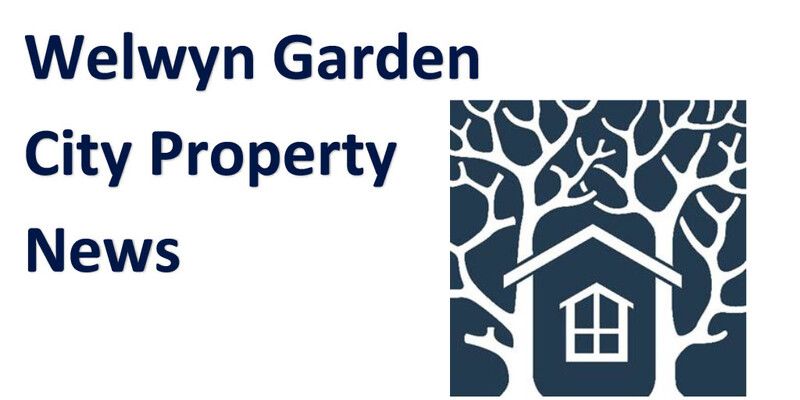Being a Welwyn Garden City landlord is undoubtedly a challenge. The glory years of making money from ‘any old property’ are certainly in the past. With increased legislation and taxation from Government and the cost-of-living crisis (which will result in some Welwyn Garden City tenants struggling to pay their rent), times are challenging for many landlords. Then newspapers are full of stories of landlords being pushed into the red as mortgage rates continue to rise. A landlord last summer could have fixed their 5-year buy-to-let rate with a 25% deposit at 1.86%, whilst today the best 5-year deal is with Barclays at 4.36%. This increase will add more than £246 per month to the landlord's mortgage bill for the average UK buy-to-let property. Landlords’ mortgages stand at £237.81bn, meaning collectively, landlords could have to pay an additional £7.11 billion per year in mortgage interest payments. Next, the press is reporting in Q2 2022 (when compared to Q2 2021), landlord possession claims for arrears increased from 6,997 to 18,201 properties (a rise of 160%), property orders from 5,431 to 14,319 (an increase of 164%), warrants from 3,786 to 7,728 (a rise of 104%) and landlord repossessions from 1,582 to 4,900 (a rise of 210%). This is on the back of the Section 24 tax changes made a few years ago and ahead of expensive energy efficiency upgrades that the Government is expected to legislate for in the coming 12 months. Doesn’t sound good for landlords. Until you look past the headlines and look at the actual detail. 79.93% of UK buy-to-let (BTL) mortgages are interest-only mortgages (compared to 12.29% of homebuyers), meaning the repayments are considerably lower than typical homebuyer mortgages. Therefore, the rise in interest rates won’t hit landlords’ profitability as much as many thought initially. 93.21% of all new BTL mortgages agreed in the last two years have been on a fixed rate mortgage, and 73.27% of all existing BTL mortgages are on a fixed rate. So, the increase in mortgage payments will only affect one in four landlords on variable-rate mortgages. Let us not forget that less than one in three landlords have a BTL mortgage, meaning two out of three landlords aren’t affected by these interest rate rises. The average rent of a Welwyn Garden City property is now £1,700 per month, an impressive rise of 7.6% compared to a year ago. Those possession orders mentioned above look high until you realise that there are 4.4 million properties in the private rented sector. That means only 2.04% of UK rental properties had arrears bad enough for landlords (or agents) to start possession proceedings to evict the tenant. Also, only 0.045% of tenants were evicted through the courts in a calendar year. Talking of arrears, recent studies using statistics from the Government and other letting industry sources show that…Landlords who didn't use a letting agent to manage their property were 272.5% more likely to be two months or more in rent arrears in 2021. It pays to use a letting agent! Next, the potential cost of upgrading rental properties' energy efficiency. The proposed changes in the MEES regulations require a minimum energy efficiency (measured by its Energy Performance Certificate (EPC)) to a ‘C’ rating on new tenancies from 2025 and existing tenancies by 2028. That will cost, on average, £10,000+ per property. Yet it cannot be forgotten when the rules changed in 2018, properties had to have a minimum EPC rating of E in England and Wales to be legally compliant. If a landlord of an 'F' or 'G' rated rental property could prove that it would cost more than £3,500 to make those improvements to their EPC rating, then that was the most the landlord had to pay. No doubt something similar will take place in the future proposed legislation. Then there is the profitability of renting. Rental yields are the primary guide to profitability in buy-to-let. Yields are starting to rise as Welwyn Garden City rental growth is beginning to outstrip Welwyn Garden City house price growth. The average yields being achieved in Welwyn Garden City today are: • 1 bed – 4.5% yield • 2 bed – 4.4% yield • 3 bed – 4.0% yield • 4 bed – 3.1% yield Yet investing in buy-to-let isn't just about the yield. Demand from tenants plays a massive part in the success or failure of your buy-to-let investment, so other yardsticks, such as void periods, should be considered. There is no point in securing a higher-yielding rental property if that buy-to-let investment remains empty. My research has found that the Welwyn Garden City overall void period average so far is 41.4% lower than 18 months ago, reducing from 29 days in April 2021 to 17 days in September 2022 (the void period being the time it takes from the date of an old tenant moving out until the new tenant moves in). Finally, buy-to-let investment is also an excellent hedge against inflation compared to other investments. If you would like more information on that, drop me a line, as it's too long to post here. In conclusion, the days of buying any old Welwyn Garden City buy-to-let property at any price and making loads of money from it as easy as falling off a log are gone! The next few years will be challenging for everyone. Still, with the advice and opinion of a decent Welwyn Garden City letting agent to guide and support you on your buy-to-let journey, buy-to-let will continue to be a profitable investment. You need to review your rental portfolio regularly. See how your portfolio measures up against yield vs capital growth see-saw. Review your mortgage financing and EPC status of your portfolio. If you would like a no obligation chat with me to discuss your options as a new potential landlord or an existing landlord with a rental portfolio, then let's talk.

